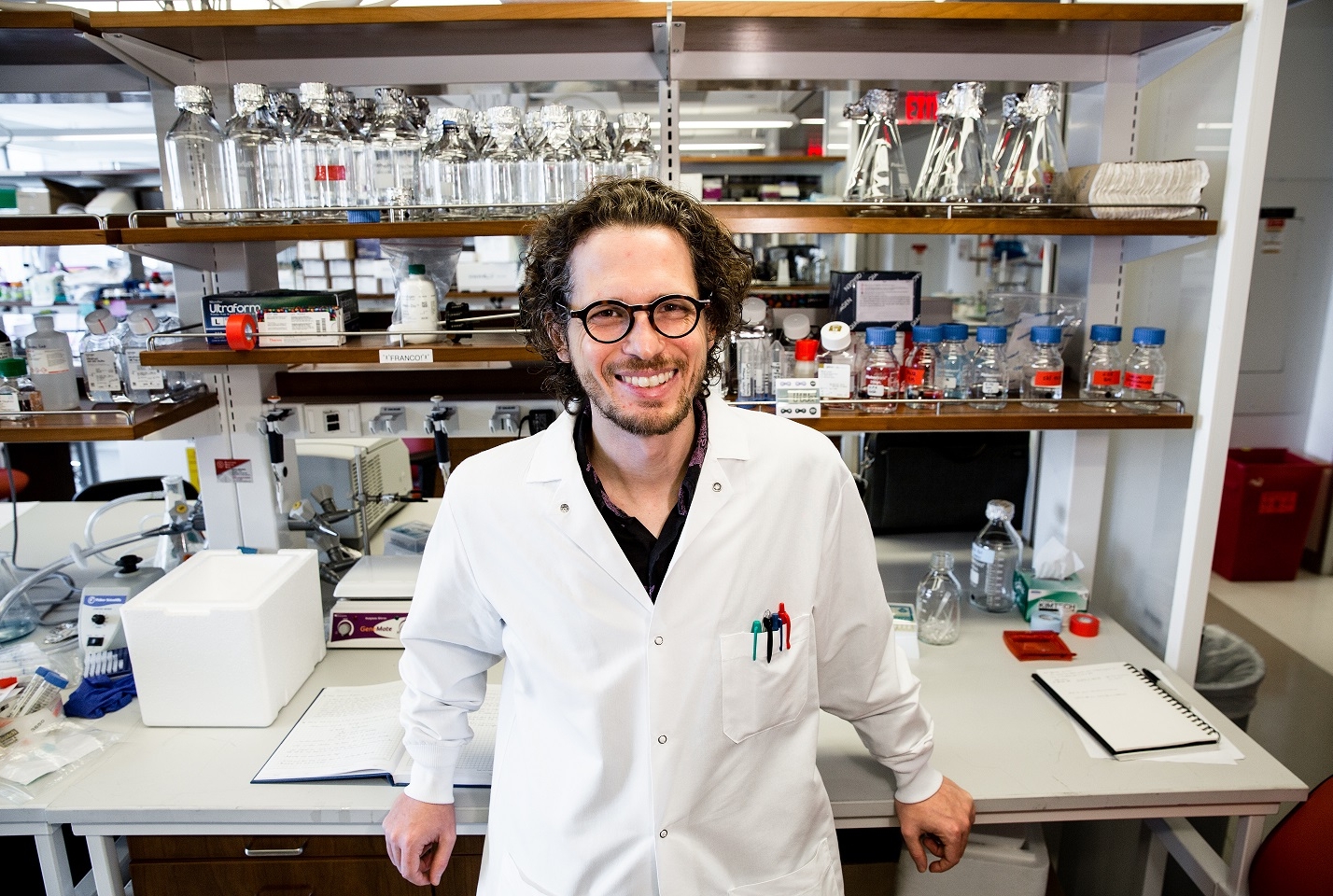Dr. Dan Landau, an assistant professor of medicine and of physiology and biophysics at Weill Cornell Medicine and a core member of the New York Genome Center, has received a New Innovator Award from the National Institutes of Health for his research on how tumor cells evolve and acquire new mutations to evade cancer therapies.
Established in 2007, the NIH Director’s New Innovator Award, part of the NIH Common Fund, supports exceptional early-career investigators who are pursuing bold, innovative approaches to solve some of the greatest biomedical challenges. Dr. Landau is among 58 scientists nationwide to receive the prestigious award, which carries $1.5 million in research funding over five years.
“The New Innovator Award is a unique opportunity that allows us to pursue an ambitious, high-risk project that would not be funded through traditional mechanisms,” said Dr. Landau, who is also an oncologist in the Division of Hematology and Medical Oncology at Weill Cornell Medicine and NewYork-Presbyterian/Weill Cornell Medical Center. “This funding will enable us to rethink cancer therapy with an evolutionary biology perspective, and develop therapeutic strategies to overcome the ability of cancer to evolve in response to treatment.”
Dr. Landau’s research focuses on a central challenge in cancer therapy, which is the ability of tumors to evolve and stymie successful treatment. Like bacteria, cancer cell populations undergo an evolutionary process that increases their diversity and enables them to acquire new mutations. This process forces cancer therapies to target not a single disease but rather thousands of variations of disease within each individual patient.
With his award, Dr. Landau, also a member of the Sandra and Edward Meyer Cancer Center at Weill Cornell Medicine, will investigate how tumor cells from chronic lymphocytic leukemia, the most common form of leukemia in adults, evolve to overcome therapy. Dr. Landau’s team will apply liquid biopsy technology, which analyzes cancer cells or tumor DNA circulating in the patient’s blood, to rapidly sequence the genome of the leukemia cells multiple times throughout the patient’s therapy. Dr. Landau aims to optimize treatment by continuously monitoring genetic changes in cancer cells in real-time.
Dr. Landau and his colleagues have also developed a number of single-cell technologies called multimodality sequencing technologies, which enable researchers to analyze not only the DNA mutations, but also other modifications that affect how genes are transcribed and translated into proteins. This will allow the researchers to better understand the fundamental principles of tumor cell evolution by accounting for all of the changes inherited from cell to cell.
“It’s very exciting for the lab to be recognized with this prestigious award,” Dr. Landau said, “and for us to have the opportunity to be part of a community of researchers trying to push the envelope on concepts and technologies that are transformative in their scope.”
The NIH Director’s New Innovator Award is supported by the National Institutes of Health under Award Number DP2CA239065.

